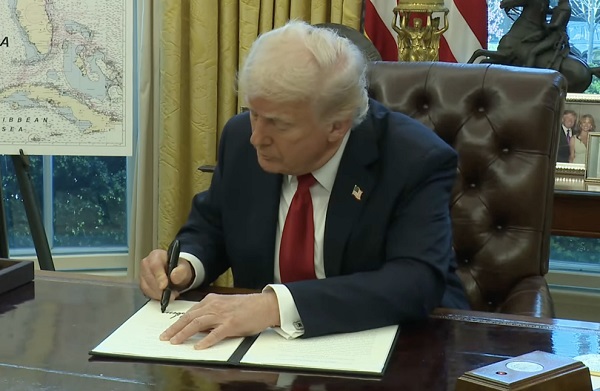Also Interesting
How and Where to Store Cryptocurrency Safely

Owning crypto is one thing but storing it well enough is as important as owning it. Crypto doesn’t have the same protection as traditional currencies; money held in banks is safer than storing crypto the way it’s stored; because you need to keep it yourself.
Once you lose access to your crypto, chances are you’ll never get it back again; this is a prevalent issue for crypto owners. Since the inception of crypto, over 3.7 million Bitcoins have been lost.
There are different ways to store your crypto; you can keep them on hardware devices, applications, or even paper. When you learn about the various forms of storing crypto, you can choose a storing method that’s favourable for you and can keep your crypto safely.
Just as cash is saved or kept in physical wallets, so is bitcoin; the latter is stored in a digital wallet.
You can keep your bitcoin by printing the private keys and addresses on paper and using them whenever possible. Some of the best bitcoin wallets in Canada for storing cryptos are web-based or hardware-based. A digital wallet can also be on a smart device, like a smartphone, tablet or desktop computer.
Sometimes, not all digital wallets are safe enough to store crypto; securing crypto on a digital wallet depends on how the user manages the wallet. Each digital crypto wallet has a private key; without that private key, an owner of a bitcoin can’t access their bitcoin.
When your key is stolen, your bitcoin isn’t safe anymore. Once you lose your private key, it’s hard to get your bitcoin and thus, it’s hazardous to lose your private key. Crypto owners can also lose their bitcoin through hardware crashes or computer hacking.
Storing Cryptocurrency in a Custodial Wallet
A custodial wallet is a default option for storing crypto; by keeping your crypto in a custodial wallet, a third-party stores crypto for you, either offline or online – cold or hot storage – or a combination of the two ways.
At any point in time, when you buy crypto from crypto exchanges, apps or brokers, they store the crypto in a custodial wallet – a wallet that either the trade, app or broker company usually controls. Suppose you choose to keep your crypto. Yourself, you can transfer it to your hold or cold wallet.
Storing Cryptocurrency in a Cold Wallet
A cold wallet is usually an offline crypto wallet, and there are several ways one can store crypto in cold crypto storage; even better, you can keep your crypto private key on paper by writing the keys on paper. Still, the most common way of storing crypto on a cold wallet is by using hardware.
Hardware wallets are small devices that are usually connected to a computer and store cryptocurrency. These hardware devices for storing crypto are connected to the internet when you want to send and receive cryptocurrency, but when you aren’t sending crypto, you can keep your coins offline.
Store coins in a hot Wallet
A hot wallet; is an app that stores coins online; you can access a hot wallet from a desktop or mobile app and web-based wallets.
Store Cryptocurrency in a Physical Wallet
Storing cry top wallet involves having a paper containing your private keys in both strings, characters, and scannable QR codes.
These keys are used to make cryptocurrency transactions; you receive crypto with a paper wallet using the public key. To send crypto, you need to scan public and private keys.
Conclusion
Offline wallets are considered the best way to store crypto because they are secure, and many crypto platforms employ hardware storage to store their crypto. You can keep your crypto in a cold wallet for large amounts of coins. You can purchase hardware wallets for prices ranging from $50 to $150.
Also Interesting
The bizarre story of Taro Tsujimoto

The National Hockey League (NHL) has seen its fair share of strange moments, but few compare to the bizarre and hilarious tale of Taro Tsujimoto, a player who never existed. His “selection” in the 1974 NHL Draft remains one of the most legendary pranks in hockey history. If you want to wager on actual players, making the 1xBet app download is definitely a great idea.
In the 1970s, the NHL Draft was a much less glamorous event than today. It was a tedious process conducted over the phone, with teams calling in their picks. The 3 biggest highlights of what happened during that year’s draft were:
- the draft dragged on for hours;
- there were multiple rounds and teams selecting unknown prospects from obscure leagues;
- frustrated with the monotony, Buffalo Sabres general manager Punch Imlach decided to have a little fun.
As the 11th round approached, Imlach instructed his team’s representative to draft Taro Tsujimoto, a supposed forward from the Tokyo Katanas of the Japan Ice Hockey League. The name sounded authentic enough. The league officials, unfamiliar with Japanese hockey, accepted the pick without question. By downloading the 1xBet app you will also be able to wager on great NHL teams too.
A small problem
There was a small problem with all of this, as 2 things didn’t exist: Tsujimoto and the Tokyo Katanas. Imlach had completely fabricated the player as a joke, taking advantage of the NHL’s lack of verification. When it comes to NHL wagers, there is no better platform than the 1xBet Canada site.
For weeks, the league listed Tsujimoto as an official draft pick, and even some newspapers reported on Buffalo’s mysterious new Japanese prospect. Eventually, the Sabres admitted the hoax, and the NHL was forced to retroactively erase the selection from its records.
Despite being a fictional player, Taro Tsujimoto took on a life of his own. Buffalo Sabres fans embraced the prank, and over the years, his name has become a cult legend in hockey culture. Some fans even wore jerseys with “Tsujimoto” on the back. The joke persisted so much that when EA Sports released NHL video games, players could occasionally find Tsujimoto in the game’s draft pool as a hidden Easter egg.
More than just a prank, the story of Taro Tsujimoto highlights 2 things: the quirks of old-school sports management and the creativity of one of hockey’s most colorful executives. Today, with the draft process being highly scrutinized and broadcast live, such a prank would be impossible. But Tsujimoto’s legacy lives on as one of hockey’s greatest inside jokes. What is not a joke are the great rewards that a platform like the Canadian 1xBet site can give you.
Also Interesting
60% of Canadians gamble each month – why the industry is going from strength to strength

When it comes to regulating gambling, Canada has a somewhat relaxed approach. The Canadian Gaming Association oversees the industry, but it’s up to individual provinces to enact and enforce any laws relating to online casino gaming, sports betting, traditional casino gaming, and other forms of gambling.
Canada’s online casino gaming laws are not totally clear, but individual provinces are starting to put this right. Ontario was the first and did so when it launched its own regulated igaming market in April 2022. Now some other provinces have followed suit, creating a safer igaming environment for players in those provinces. Below is a look at gambling in Canada compared to other parts of the world, at gaming laws in Alberta compared to other provinces, and at the future of the Canadian, US, and UK gambling industries.
Canada: a forever love of gambling
Gambling in some form or other has always been popular in Canada. Way back in the 1990s, research found six in ten Canadians (60%) gambled every month. Additionally, four in ten (43%) spent between 1 and 20 Canadian dollars on gambling. Fast forward to today and the Canadian gambling market is worth 14.2 billion US dollars as of January 2024, according to data on the website of consumer and market data company Statista.
It seems Canada enjoys wagering just as much as two other countries that love a gamble: the US and the UK. Data on the Statista website shows that 49% of US adults took part in gambling activities in 2023. Fifty-six percent said their attitude towards gambling had relaxed, compared to the 50% of 2019.
The UK returned similar stats for the same year. Forty-eight percent of adults reported engaging in gambling activity. Online casinos generated the most gross gambling yield in 2023, but it was the nation’s National Lottery that people played the most.

Alberta: following Ontario’s lead
The regulatory developments in Ontario have triggered movement in Alberta. In May 2024, Bill 16, the Red Tape Reduction Amendment Act, made it through the process and later received Royal Assent to become law. The act removes the monopoly of gaming by a single government entity and will allow private operators, licensed by Alberta’s provincial regulator, to provide online gaming services in Alberta, meaning players will have a choice of more than one Alberta online casino to play at.
The regulation transforms Alberta into one of the more liberal provinces when it comes to online gambling, others being Quebec, Ontario, and British Columbia.
Several provinces, such as Novia Scotia and Northwest Territories, have no provincially regulated online gaming sites. Some also restrict betting on horse racing and/or other types of sports betting, obliging citizens to use international betting sites for freedom from caps and betting on as many events as they wish.

What lies ahead for the Canadian, US, and UK gambling industries?
Canada’s appetite for gambling is clear, and the industry’s online sector is beginning to thrive. Ontario has enjoyed vast success by creating its own regulated market, one which, in just its first year, saw Canadians place billions in wagers and the industry itself generate more than a billion in total gaming revenue.
Canada can expect to see other provinces follow Ontario’s lead and allow private operators to provide services in the province under license. The purpose of the regulation is player protection. Any province that develops a regulated market will focus on this, so there will also be regulations around the advertising of gambling services.
The US
Gambling online is the future for the US, too, although states are slow to legalize it. As of September 2024, 38 states had legalized sports betting, following the US Supreme Court’s ruling that states could regulate sports gambling directly.
Despite allowing sports betting, some states only permit in-person betting, and only a few states allow online casino gaming. Operators believe online casino gaming is the future of gambling.
The UK
In the UK, the use of artificial intelligence (AI) will get bigger and bigger. Companies have realized AI can enhance players’ experience and are embracing it more and more. For instance, sports betting websites can use it to crunch data and provide iGamers with stats and other data to make better betting decisions. They’re also understanding they can use AI to prioritize content players are likely to be interested in and to personalize their offerings and services to players’ preferences.
Canada enjoys gambling as much as America and the UK. Although laws around igaming are more of a grey area in Canada, some provinces are clearing the issue up by creating regulated markets and experiencing great success. As time goes by, more are sure to follow.
-

 Alberta1 day ago
Alberta1 day agoAlberta Institute urging Premier Smith to follow Saskatchewan and drop Industrial Carbon Tax
-

 Addictions1 day ago
Addictions1 day agoShould fentanyl dealers face manslaughter charges for fatal overdoses?
-

 2025 Federal Election2 days ago
2025 Federal Election2 days agoFool Me Once: The Cost of Carney–Trudeau Tax Games
-

 Alberta1 day ago
Alberta1 day agoAlbertans have contributed $53.6 billion to the retirement of Canadians in other provinces
-

 2025 Federal Election1 day ago
2025 Federal Election1 day agoChinese Gangs Dominate Canada: Why Will Voters Give Liberals Another Term?
-

 Automotive2 days ago
Automotive2 days agoTrump announces 25% tariff on foreign automobiles as reciprocal tariffs loom
-

 Also Interesting20 hours ago
Also Interesting20 hours agoThe bizarre story of Taro Tsujimoto
-

 Energy1 day ago
Energy1 day agoEnergy, climate, and economics — A smarter path for Canada





